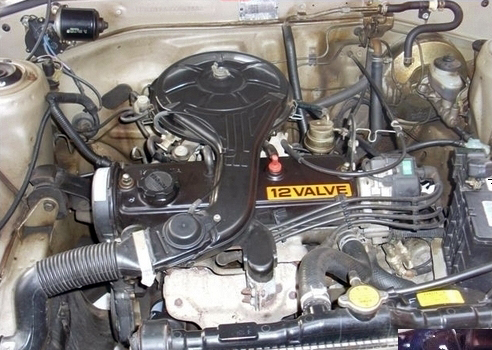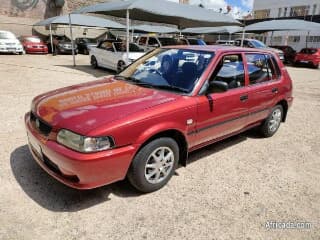Update Your Ride with Real Toyota Tazz Engine for Sale
Engine Buying Expert Tips on Selecting the Right Engine for Your Certain Requirements
Picking the best engine for your particular needs involves a complicated interplay of elements that go beyond mere horse power numbers. From power result to sustain effectiveness, the decision-making procedure can be intimidating. Understanding the subtleties of engine kinds, dimensions, and their compatibility with your automobile is important. However, there are experienced pointers that can assist browse this terrain with confidence. By diving right into the ins and outs of power versus performance, examining fuel scores, and budgeting for lasting expenses, one can really enhance their engine selection.
Power Vs. Performance: Discovering the Balance

When choosing an engine, it is essential to strike an equilibrium in between power and effectiveness to fulfill your details needs successfully. Power describes the engine's capacity to generate energy for propulsion, determining elements like velocity, lugging capacity, and overall efficiency (Toyota Tazz Engine For Sale). On the other hand, performance associates with how well the engine utilizes gas to produce power, impacting aspects such as gas economic situation and environmental kindness
Achieving the right equilibrium between power and effectiveness is important due to the fact that an engine that is too powerful may consume excessive gas, bring about greater operating expense and unneeded stress on the atmosphere. On the other hand, an engine that prioritizes effectiveness over power may cause sluggish performance, especially in demanding circumstances like lugging hefty lots or driving uphill.
To make a notified choice, think about variables such as your typical driving problems, the intended usage of the vehicle, and your individual choices. By assessing your demands and top priorities, you can select an engine that strikes the excellent balance in between power and effectiveness, guaranteeing ideal performance while lessening ecological impact and operating expense.
Recognizing Engine Size and Type

Common engine types include inline engines, V engines, and rotating engines, each with its unique benefits and drawbacks. Understanding the interaction in between engine size and type is crucial in picking an engine that lines up with your specific demands and priorities, whether it be power, effectiveness, or a balance of both.
Consider Your Vehicle's Needs
If you are looking for an engine for a heavy-duty vehicle that will certainly be utilized for towing, you will require a powerful engine with high torque capabilities. On the various other hand, if you are choosing an engine for a portable auto mostly made use of for city commuting, fuel efficiency may be an extra essential element to consider.

Reviewing Fuel Effectiveness Ratings
Evaluating fuel effectiveness rankings is an important aspect of choosing the best engine for your lorry, ensuring price savings and ecological sustainability. Gas performance scores, commonly determined in miles per gallon (MPG) for fuel engines or kilowatt-hours per 100 miles (kWh/100 miles) for electric engines, suggest how far a car can take a trip on a specific amount of fuel or electrical power. Higher MPG or lower kWh/100 miles values indicate extra reliable engines, translating to minimized gas costs and reduced carbon exhausts.
Additionally, compare different engine choices within the same lorry class to identify the most affordable selection. Aspects such as engine dimension, weight, the rules of aerodynamics, and crossbreed or electric abilities can all influence fuel effectiveness.
Budgeting for Long-Term Costs
Tactically preparing for long-term expenses is imperative when choosing an engine, making certain monetary sustainability over the car's lifespan. While the first acquisition rate of an engine is a substantial variable, it is essential to consider the long-term costs related to maintenance, repairs, and fuel usage. Selecting an extra fuel-efficient engine may have a higher ahead of time expense however can lead to considerable financial savings in time. Routine maintenance, such as oil modifications, filter substitutes, and tune-ups, is important to maintain the engine running efficiently and efficiently, reducing the threat of expensive repairs down the line.
In addition, investigating the accessibility and expense of substitute components for the selected engine is important in spending plan planning. Engines with budget friendly and easily available components can substantially web link influence long-lasting maintenance expenses. In addition, thinking about the engine's toughness and expected life expectancy can assist stay clear of unexpected replacement costs in the future. By very carefully budgeting for these long-term expenses and factoring them right into the decision-making process, individuals can select an engine that not just fulfills their prompt demands but also stays cost-effective throughout its these details life-span.
Verdict
To conclude, selecting the best engine for your certain requirements needs stabilizing power and efficiency, recognizing engine dimension and type, considering your automobile's needs, evaluating gas efficiency ratings, and budgeting for lasting costs. By meticulously taking into consideration these variables, you can make certain that you pick an engine that satisfies your demands and supplies optimal performance for your automobile.
To even more fine-tune the choice process of an engine that strikes the ideal balance in between power and efficiency, it is necessary to delve into the intricacies of recognizing engine size and type. Engine dimension refers to the total volume of air and fuel that can be pressed through the engine cyndrical tubes. Usual engine kinds include inline engines, V engines, and rotary engines, each with its unique advantages and drawbacks. Comprehending the interaction between engine size and type is crucial in choosing an engine that aligns with your specific demands and priorities, whether it be power, efficiency, or a balance of both.
Fuel performance scores, normally determined in miles per gallon (MPG) for gasoline engines or kilowatt-hours per 100 miles (kWh/100 miles) for electric engines, indicate just how far a vehicle can travel on a particular amount of fuel or electrical power.